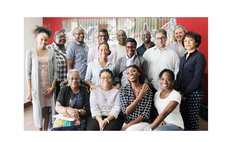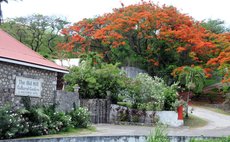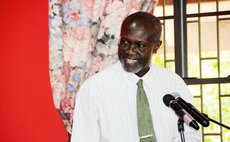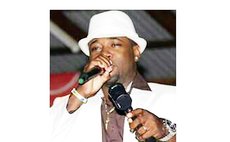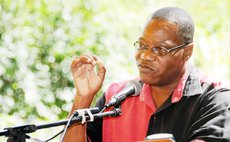For Felix Henderson: Make Kwéyòl Official
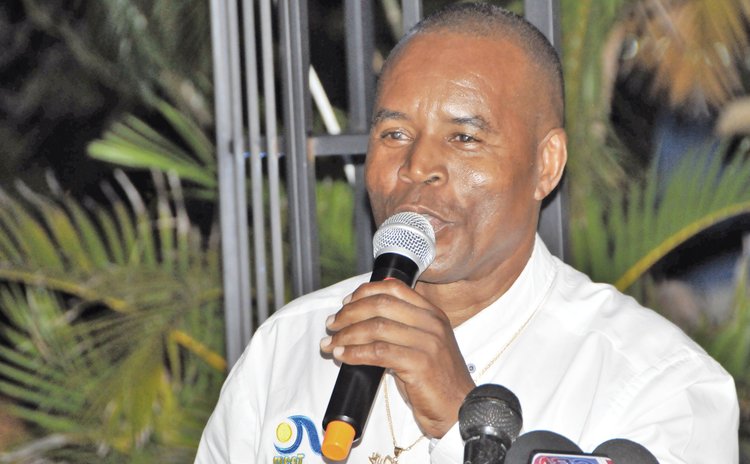
So last weekend he was interred, a finality we all at some time have to face. But when we leave what is the legacy? Is it a house, property and children? Or are called upon to leave a footprint in the sands of time? I think we are because although Christ was a carpenter he left none of those physical things where dust and moths can corrupt but instead left memories, a hope of eternity, even by way of his death. A body was not even found because of its insignificance in its presence in the carnal state. Indeed, we are all called upon to leave a monument behind, a spiritual monument where mankind was touched by our service and prints left on the road we once travelled. Felix Henderson left such an indelible print.
That print has made it even more lonely for Prince Wadix whose pain I felt a few weeks ago when he lamented how trivial Kwéyòl was treated on the island. Wadix our Kwéyòl Prince who admits he learnt everything from Felix himself cried foul on the radio stations save one, who did not even represent the Kwéyòl language in their programing on Kwéyòl day last month. This was a stunning revelation and indictment on us as a people and national radio stations who tout that they are about entertainment and education.
I felt the passion and disappointment in the Prince's voice and almost embarrassed being one of those not very proficient in the language, although I must say that my years of consciousness has brought me a long way.
So what do we do in memory of Felix? Well, the manager of DBS Cecil Joseph and programme director have advanced a number of programmes will be kept going in his honour and like has been done for the late DBS engineer Kurt Matthew, his memory will be kept alive annually.
However even without Felix's physical presence we still have his work by way of his advertisements, documentaries, the schools reading competitions, the Writer's Association and research with KEK which he once spearheaded. The same can be said of artistes such as Marley or Elvis Presley, two musical greats who seem to live on forever.
Still the greatest impact a life can make on a mortal man is when his work on earth is ended and the marathon can still be run as others will accept the baton and keep running to the finish line. Wadix says he is committed to this but can he do it alone? The answer is NO! So that's where the nation comes in.
Speaker of the House of Assembly, like a few others, have called for a simple inclusion of making Kwéyòl be part of normal parliamentary discourse. In the House of Assembly, it is treated as a foreign language and one must provide the English equivalent of what was said for purposes of the Hansard. What a contradiction which is demonstrative that indeed we are still enslaved in our minds when our language is given secondary status to those who colonized us.
It must start in the highest decision-making body/ court in our land as it has existed in sister island St Lucia for more than a decade. Then comes the schools as a subject; this was all part of the intent of the Francophone world. Already dictionaries have been created and scores of meetings to harmonize Kwéyòl expression and syntax globally. These consultations used to be an integral part of the annual WCMF in the early days when Eddy Toulon and D'jamala Fontaine were with us but it's just music and more music and nothing about the preservation of the language. Wadix is right; if we continue down this path for the next decade we will be struggling like the Kalinago with one new word a day in Kwéyòl as occurs now with Steven D in the mornings on DBS.
Through Dominica's latest magazine 'Creole Heartbeat' promotes artistes and brings other relevant information to the fore but work must extend beyond what the DBS is doing as the sole entity striving to give Kwéyòl a voice.
Now that all the tears are over and all the nice sentiments, eulogies have been expressed, it's time to get to work on the legacy Felix expressed with heart and soul and give Kwéyòl official and academic status or stop pretending to be the Kwéyòl capital of the world because our dress and food are incomplete without the acceptance of the language.
